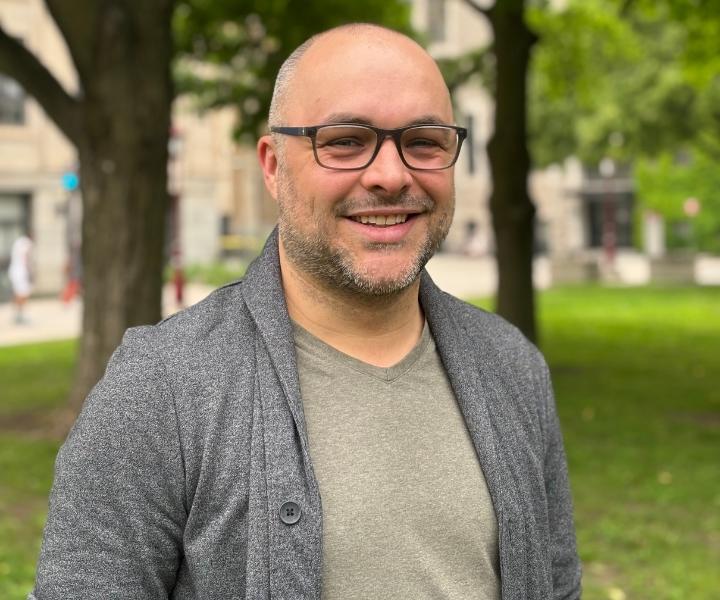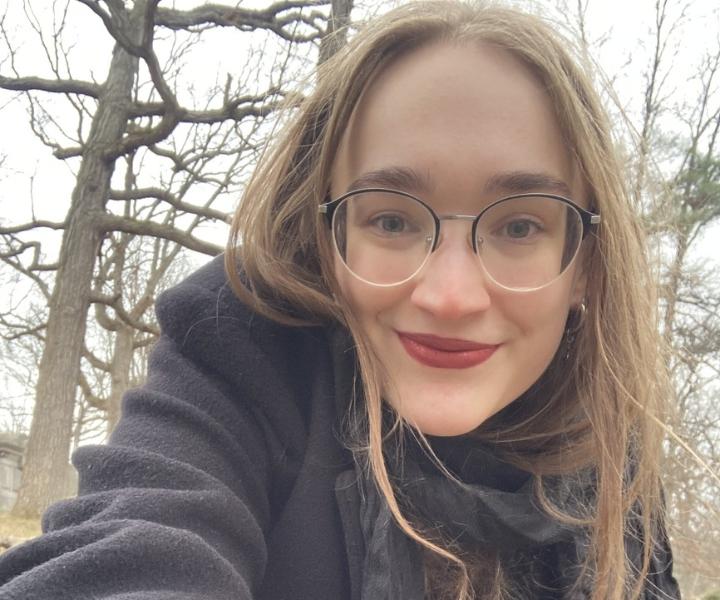Giving a voice to youth experiencing homelessness through research
Mathieu Samson-Savage has spent more than 20 years at the University of Ottawa, He started his studies at age 18, in 2003, and received a bachelor’s with dual majors in sociology and psychology, a master’s in human kinetics and a doctorate in sociology. His path was shaped through discovery: “I started in psychology because I thought it was the field that would allow me to help people the most. But I saw that my way of thinking was better reflected by sociology.”
His doctoral research, conducted in Ottawa, deals with interruption of schooling among youth experiencing homelessness. “I conducted interviews to understand how their life paths influenced the process of interruption of schooling. It’s a privilege for me to be able to work with people experiencing homelessness. These are stories we don’t often hear, voices we don’t hear much. This privilege allows me to contribute to conversations that could improve the lot of homeless people, engage in prevention and better intervene with them.”

“It’s a privilege for me to be able to work with people experiencing homelessness. These are stories we don’t often hear, voices we don’t hear much.”
Mathieu Samson Savage
— Phd in sociology
Among the highlights of his academic career, Samson-Savage mentions his thesis defence, completing his master’s, presenting his research internationally and publishing scholarly articles. Coming from a village near Ottawa, he describes himself as a “class defector,” the first in his family to go to university and receive a doctorate. “I would like to acknowledge those who helped me, who showed me what to do in a university setting I didn’t know.”
After 12 years on his doctorate, Samson-Savage would like to pursue a career in research, ideally as a professor of sociology.
Combining expertise to better understand aging
Arriving at the University of Ottawa in 2021, after studying nursing at Algonquin College, Mila Osipenko soon understood that her future was at the intersection of several disciplines. “Even if I liked nursing, I didn’t see myself doing it my whole life. The health-care system is totally crazy. Anthropology, while very different, gave me a much broader perspective on my work and studies.”
During her bachelor’s in anthropology, she studied aging, social media and the ways youth perceive the aging process. She conducted several ethnographic studies online on the effect of influencers on the perception of aging. For her master’s, which she’ll start this fall, she’ll look at the experiences of seniors in long-term care facilities.
“Our health-care system emphasizes quantity of life over quality, which worries me when discussing prolonging life expectancy. I want to better understand these residents’ experiences with medical interventions, treatments and autonomy.”
For Osipenko, the high point of her time at university was the return to campus after the pandemic. “Even if I liked the flexibility of online courses, participating in events and making friends was one of the best parts of my education. It’s when my experience was most meaningful,” she says.

“Even if I liked the flexibility of online courses, participating in events and making friends was one of the best parts of my education.”
Mila Osipenko
— Bachelor's degree in Anthropology
Osipenko would like to continue her research in an institutional setting like a university or museum, and dreams of a job that would allow her to combine anthropology and nursing to “help people differently.”
Inspiring future student cohorts
Samson-Savage and Osipenko have valuable advice for future student cohorts. Samson-Savage urges them to keep an open mind, explore and find what fits with their vision of the world. Osipenko stresses how important it is to find a balance among studies, work and social life: “It’s sometime hard to prioritize what we have to do, but the sooner we find what works for us, the better.”
For both, their time at the University is a reminder of a simple but essential truth: local impact often begins with genuine curiosity and a good ear for listening to the human reality around us.


